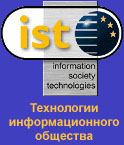
|
Aerothermal System
-
PROJECT NUMBER
-
CP94-1174
-
PROJECT TITLE
-
PREDCON - ADAPTIVE AND PREDICTIVE CONTROL WITH PHYSICAL CONSTRAINTS
-
PARTICIPANTS
-
|
*Czech Republic
|
INSTITUTE OF INFORMATION THEORY AND AUTOMATION
|
Partner
|
|
*Russian Federation
|
MOSCOW STATE INSTITUTE FOR STEEL & ALLOYS
|
Partner
|
|
*Slovakia
|
SLOVAK UNIVERSITY OF TECHNOLOGY
|
Partner
|
|
*United Kingdom
|
OXFORD UNIVERSITY
|
Coordinator
|
-
ABSTRACT
-
Aerothermal System is a portable physical model of a thermal Distributed Parameter System (DSP). It can be applied in the research and testing of advanced control algorithms for DPSs before their implementation on real industrial processes. The system also supports practical education in courses of automatic control
systems analysis and design. Key features include the ability to simulate Multi-Input, Multi-Output (MIMO) systems and one class of thermal DPSs.
-
KEYWORDS
-
Control system
Equipment
Modelling
Portability
Simulation
-
DOMAIN
-
Esprit domain Integration in manufacturing
-
SUMMARY
-
PREDCON is a series of software tools based on new control algorithms for industrial optimisation problems.
PREDCON's "Aerothermal system" is a portable physical model of a thermal-type system with distributed parameters. The system was built in the Control Laboratory at Department of Automatic Control and Measurement of Slovak University of Technology mainly for physical simulation of Distributed Parameters Systems (DPSs). The aim of the system is research and testing of advanced control algorithms for DPSs before their implementation on real industrial processes. The system is also suitable for supporting practical education in courses of automatic control systems analysis and design. The priority of the system is its ability to simulate Multi-Input, Multi-Output (MIMO) systems and one class of thermal DPSs.
A number of steps must be undertaken before a control algorithm can be successfully applied to a real environment. The main benefit of the laboratory system can be expected in obtaining first practical experiences with created control algorithms and in shortening a test phase before their implementation to a real industrial process.
The main market for the result is universities and research laboratories.
-
BUSINESS OPPORTUNITIES
-
From the business point of view the main advantages can be expected in the area of research and development of new advanced control algorithms for Multi-Input, Multi-Output (MIMO) and Distributed Parameter System (DPS) industrial processes and in supporting practical training in this direction Essentially, the system allows to decrease costs planned for experiments with real industrial processes and permits testing of the algorithms in various marginal situations. It also enables to get first experiences with tuning of the algorithms parameters. In addition, it helps to overcome the drawbacks of non-sensitivity of mathematical theories to many practical control problems and supports their solutions.
Academic and educational institutions and research laboratories represent potential markets for the system. No alternative system on the market is known to the authors.
-
TECHNICAL PERSPECTIVE
-
The main technical achievement of the system consists in its ability to illustrate MIMO and DPSs plants with:
- effects of non-linearities.
- influences of stochastic disturbances.
- inputs and outputs cross interactions.
- dependence of state variables on spatial coordinates.
-
CURRENT APPLICATIONS
-
The laboratory system is currently used in the Control Laboratory for research and development of MIMO and DPSs predictive and adaptive controllers and is used also for laboratory seminars in courses on System Identification and Adaptive Control. Especially the system is suitable for research and development of control algorithms for plants where the main problem is to stabilize a temperature field (profile) along a specified spatial domain (reheating furnaces, burning kilns etc). Several types of MIMO predictive control algorithms were successfully implemented and tested using this system.
-
TERMS AND CONDITIONS
-
The future exploitation of the results is expected in collaboration with companies supplying teaching equipment for university laboratories.
|
 © European Communities, 1998
© European Communities, 1998
|











 © European Communities, 1998
© European Communities, 1998